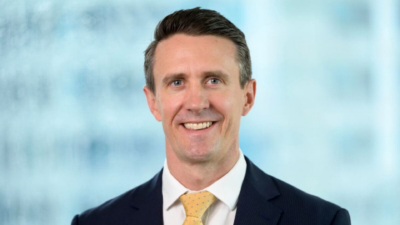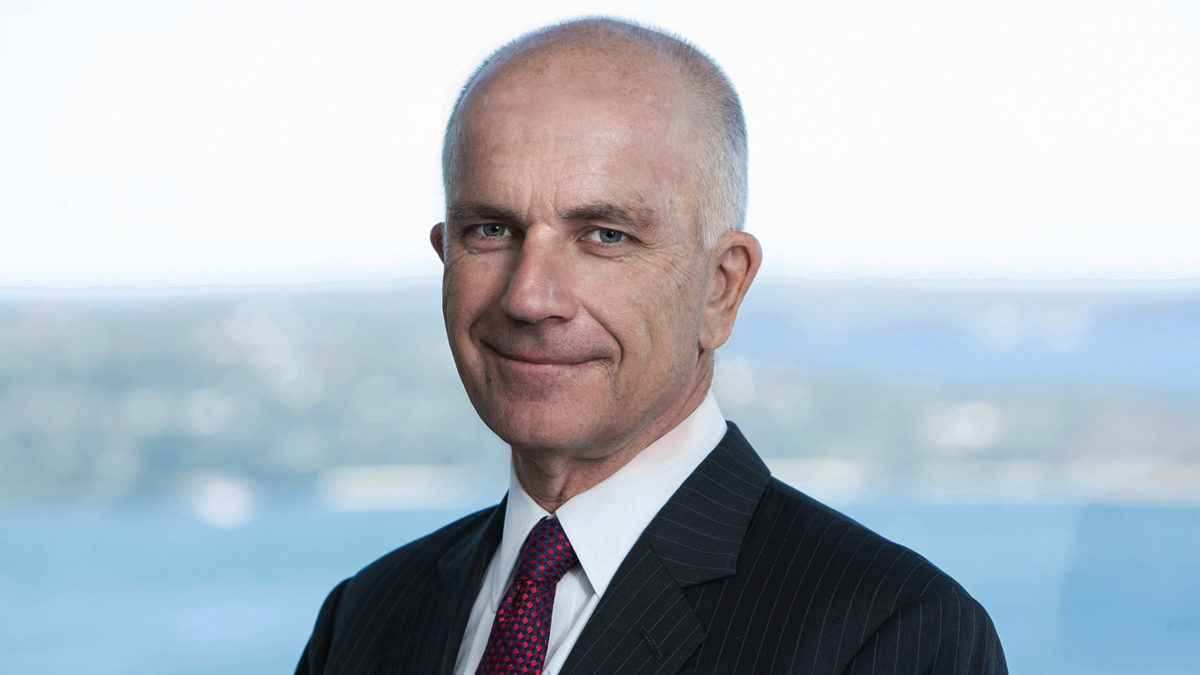‘Think differently to the next guy’: Paradice on why fundies falter
The coffee table books in Chifley Tower offices trend towards the staid; doorstop volumes of corporate art collections, the works of Peter Lynch and Michael Lewis, Thinking Fast and Slow (noticeably absent: Where Are the Customers’ Yachts?). Bucking the trend, Paradice Investment Management keeps the works of Dr Seuss close at hand.
In one book, Horton Hatches the Egg, the titular elephant endures storms, attack by hunters, and imprisonment in a travelling circus to safeguard an egg on behalf of a bird that has permanently relocated to Miami – something David Paradice believes illustrates his eponymous firm’s process.
“He stuck to the egg and did the same thing year-in, year-out,” Paradice says. “That’s what we like to be.”
Active equity managers have endured a horror decade as the money-fuelled tech bubble inflated to epic proportions and the index paced anybody who cared about fundamentals. But some managers have been able to prove their bona fides in a year when markets were reminded that interest rates also go up. Paradice IM has seen strong performance, particularly in its Australian strategies, where bets on energy and insurers paid off.
“You’ve got all these tech and growth stocks that have been motoring along,” Paradice says. “And sure there’s value up in the top end, but there’s a lot of risk in the little end; back in 2006, the technology stocks – Open Telecommunications was worth a couple of billion dollars – a lot of them went broke.”
“A lot of the money that was being bundled into these companies that weren’t making money has dried up. You’ve seen a certain amount of underperformance by these technology fund managers as compared to say, ourselves.”
Some technology funds have been belted to -70 per cent. They’ll have their day again, Paradice says, but for now the ball is back in front of fundamental stock pickers, while the poster children on the way up – Tiger Global, ARK Invest – are also the poster children on the way down. When told that Cathie Wood created ARK in order to “fulfill the will of God”, Paradice remarks “that He just forgot about interest rates.”
But the real reason fund managers underperform, to Paradice’s mind, is return envy.
“You’re sitting there and it’s hard – it’s very hard. You invest in a certain way and then you have periods when markets are against your way,” Paradice says. “If you have style drift and you move into the latest hot thing, you’re gonna get whipsawed (ed: when the price of a security an investor has just bought moves in the opposite and unwanted direction).”
“Those guys that don’t continue the same approach through the cycle are sometimes the guys who get belted. That’s usually the death knell of a fund manager, that style drift… It’s hard to remain disciplined; you don’t want to change your style, but you do need to evolve with the way investments are made.”
Active equity managers have been in the arsenal of this year’s super fund outperformers, while the passive trend has seen others drift down the league tables. But capacity constraints, internalisation, and the performance test have crimped the ability of some fund managers to win or keep mandates. Paradice doesn’t count his own shop among them, but says “it’s not easy out there.” Still, he’s somewhat sceptical of the returns to be had from big super’s new favourite toy: private equity.
“Everybody thought that private equity, where a lot of money was going to, was immune to valuation reduction… Now rates are going up and that has affected private equity valuations, so they’re not immune to it,” Paradice says. “Maybe the money will come back into active equity managers, and we definitely benefit (from volatility).”
Paradice IM’s new partnership with Charter Hall has provided it with retail distribution heft; Paradice and the team are now sketching out plans for a global all-cap strategy, to complement the existing global SMIDs capability. It’s good to diversify, and Paradice “needs and wants to keep growing”; its biggest clients are increasingly bucking their own home country bias and going offshore with everything from equities to infrastructure. The trouble is in finding somebody to run it.
“You don’t want somebody who’s up 40 per cent one year and down 20 per cent the next… When you’re looking at fund managers, it’s always better to have somebody who’s a generalist, not a specialist,” Paradice says. “I’ve seen it so many times before, where other fund managers employ a media specialist and they start focusing the portfolio just towards media because that’s what they know… You have to be ahead of the next guy and think differently to the next guy.”











